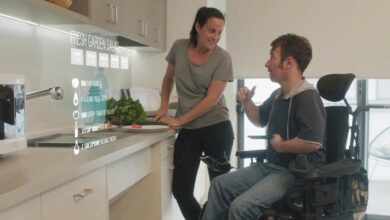Members review NHHRC recommendations on research funding for nursing
Through the RCNA Advisory Council, RCNA has undertaken a comprehensive review of the recommendations contained in the National Health and Hospitals Reform Commission’s (NHHRC) final report.
A Healthier Future for All Australians (the Report), released in June 2009. RCNA expert member comments on the Report’s recommendations on “fostering continuous learning in our health system” are discussed in detail below.
As the “fifth lever for reform” proposed in the report, the NHHRC states that the recommendations under this theme seek to embed “continuous improvement, innovation and research through actions targeted at both the national level and at the local level of individual health services”.
Expert RCNA members have reviewed the set of recommendations and offer support for the NHHRC recommendations with some qualifications.
A key message emerging from their feedback advised there is an essential need to create greater equity in access to health research funding across the health professions and that any integration of research programs must be nationally coordinated. A national model, they argued, would help in building a more robust evidence and knowledge base to support a range of the NHHRC recommendations.
RCNA members also suggested ways forward for promoting better research and continuous learning for the nursing profession. Greater investment in nursing research, including funding for clinical research fellowships, and improved dissemination and communication of research findings would go a long way to strengthening the knowledge base of nurses.
Expert feedback also emphasised that due to the relatively small health research environment within Australia, research silos must be broken down and the scope for research duplication minimised, particularly in the clinical setting. RCNA is of the view that greater inter-disciplinary collaboration across all care settings would help facilitate this.
It is argued that Australia could learn from international examples such as Canada, where dedicated research funding for nursing has been in place for the past 10 years. This has resulted in a boost to nursing research and has made a positive impact on the generation of evidence and knowledge for better patient care.
Recommendation 109 recommends enhancing innovation through a ‘clearing house’ within the National Institute of Clinical Studies and greater sharing of best practice information between health professionals by increased participation in roundtable and clinical forums. In response, RCNA members noted that these proposals would need to be coordinated at a national level and that there should only be one forum through which these initiatives should be undertaken.
Commenting on recommendation 111, that the Australian Commission for Safety and Quality in Health Care (ACSQHC) should be established as a permanent, independent national body, expert members noted that ACSQHC would need to have a mandate for action across all states and disciplines.
RCNA members indicated conditional support for recommendation 114 which recommends that all health care services “should be required to publicly report on progress with quality improvement and research”.
Members highlighted issues around compliance requirements, where sectors, such as aged care, are already subject to substantial documentation requirements. The creation of additional burdens on health care services as a result of this recommendation would require consideration in any new initiative.
RCNA’s formal response to the Report will largely reflect the views of members so if you would like your views represented submit your comments to [email protected]. RCNA’s response will be posted on the RCNA website in the very near future.
Email: [email protected]





